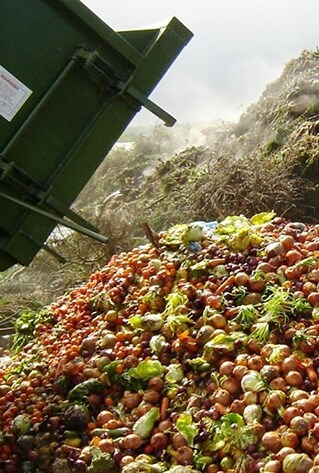Unlike a fully-functional 21st century robot, a human brain is capable of not just thinking but also imbibing values and triggering emotions based on the information it is fed. So what do we really do with all this ‘information’? We go on autopilot, just like the machines we depend on. We read the news to start our day, frequently share environment-themed stories on social media, launch into virtual or real-life debates and commit to ‘saving the earth’, but just for a day.
Today, in a time when defeating a lethal virus has become our top priority as a race, we’re finally sitting back & reflecting on our actions. The temporary standstill has presented us with only one route to follow – the mindful path.
The textbook definition of mindfulness is – to be conscious or aware of something. Now, the real challenge isn’t ‘how to be conscious’ but to retain our reflections rather than leaving them behind when we make a full-fledged entry into the world again. We now know that every minute act further contributes to a larger picture and that a healthy planet equals a healthy future. So, let’s break down this idea to string it into our daily life and choices! Right from your wardrobe picks to the food you choose and everything in between; incorporate a ‘mindful’ approach to help restore Mother Nature; our only source of life.
Understand Cause & Effect.
We have learnt how to adjust & adapt quickly to ever-changing situations, but we have also learnt to react, rather than act. For example, a flat sale at your favourite store garners only one’ reaction’ – it’s time to grab all you can! But stop. Take a minute to think it over. What exactly is it that you need from this sale? Are you looking to replace your worn-out pair of denim? Or are you merely looking for a silhouette that isn’t in line with your personal style, but it’s ‘trending’ right now and is totally flaunt-worthy? Reason number one is acceptable and somewhat ‘conscious’ but reason number 2? Not so much. Allow us to simplify it for you.
The cause: Random wardrobe pieces.
The effect: Extra outfits hanging at the back of your closet, untouched and unused.
Now, we’re all for shopping sprees, but if you want to invest in a clothing item, it’s best to go with ones that you know you’ll wear for a stretched period or at least more than a few times. Something as simple as this can contribute to less wastage, bringing you another step closer to mindful living – and also won’t make you regret that dent in your wallet.

Stop Saying ‘Yes’ To Excess.
With everything we need now at our fingertips, courtesy of technological advances and internet penetration, we are in love with just how ‘easy’ things are. Your foundation shade down to its last drop? Order placed. Midnight cravings rearing their head again? Your delivery is only 30 minutes away! Sounds familiar, doesn’t it? But let’s work with another example here – you order a large pizza, feel full by the fourth slice, and the rest of it most probably ends up in the trash can. If only you had your portions right, the chances of wastage would have been zero to none. Here’s where setting realistic limits come into play! We’re all guilty of mindlessly bringing excess into our lives, and disposing of it just as quickly. The result of this is tons of hazardous waste – even when you don’t know the hazards – that we could have avoided by educating ourselves and applying what we learnt. Treat waste as a slowly but surely rising enemy which will haunt our lands & oceans for years to come. The massive amount of resources that are spent on tackling waste can then be diverted towards building better healthcare systems or eradicating other environmental issues.

Reuse, Recycle, Replenish.
Living mindfully and consciously goes way beyond just careful decision making, and a considerable part of it is thinking ahead. We have heard the word ‘recycle’ being passed around and thrown into conversations, whether formal or informal. But what it sounds like is rocket science when in reality, that isn’t the case. Start with small but effective measures. Several brands encourage customers to bring back their empty bottles or submit a pile of clothes that they don’t need. A lot of times, a mere lookover at the back of an item or product tells you if it’s fit for reuse or recycle, or if it is biodegradable. You can then base your decisions around your newfound knowledge, and even pass it on to your friends and family. A lot of brands and individuals are turning towards scraps for making masks during the pandemic, and there’s just so much more you can do if you begin seeing an opportunity in everything that may seem ‘useless’ at first. We don’t need bans or laws to stop us from doing something we shouldn’t be doing in the first place.

Let’s change our ways before we are forced to go down an unfamiliar road. After all, as English historian John Goodall says, “You cannot get through a single day without having an impact on the world around you. What you do makes a difference and you have to decide what kind of a difference you want to make.” The planet needs us; it’s time to show up for it!
Image Credits: Pinterest























































































































































